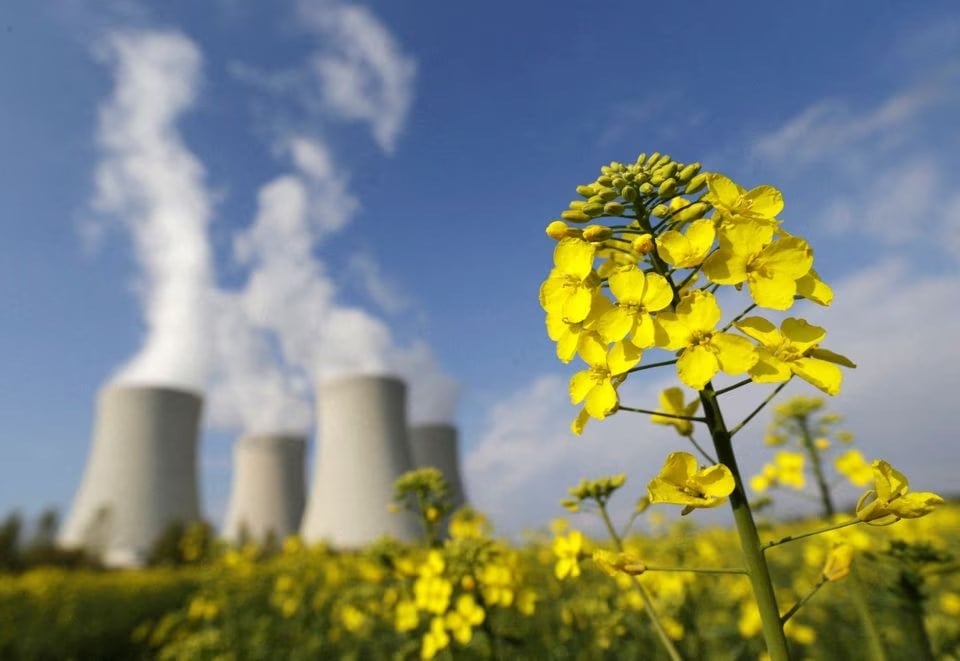$890m green energy can replace Russian gas in EU by year 2028: Report
A co-author of the report says replacing natural gas with wind and solar energy eliminates the need to pay for gas in the future.
-

A view of a field near the cooling towers of the Temelin nuclear power plant near the South Bohemian city of Tyn nad Vltavou on April 12, 2014 (Reuters)
A report by the Oxford Sustainable Finance Group, a part of the Smith School of Enterprise and the Environment at the University of Oxford, claimed on Tuesday that Russian gas can be replaceable with green technology in the European Union by 2028 with a total capital expenditure budget of €811 billion ($890 billion).
The report, titled 'The Race to Replace: The Economics of Using Renewables to Free Europe from Russian Gas', estimates the cost of fully replacing Russian gas used for heating and electricity generation with green energy instead.
The expenditure of €811 billion entails a budget of €299 billion on clean energy as part of the European Green Deal and an additional €512 billion in renewable energy and heat pumps. The report states that up to 90% of the additional investment "could be recouped over the next thirty years by eliminating the need to buy gas," as it acknowledged that policy changes were required to achieve this.
Since the start of the Ukraine war, the EU has been attempting to lessen its reliance on Russian gas by 2028.
Read more: EU Net Zero Industry Act to combat US, China green energy initiatives
Public and private funds are necessary to improve large-scale deployment of renewables and heat pumps, auctions for utility-scale wind and solar projects, the report pointed out, adding that deploying rooftop solar panels at speed and increasing support for insulation and the installation of heat pumps were also crucial to achieve the set goal.
Co-author of the report and head of transition finance research at the Oxford Sustainable Finance Group, Gireesh Shrimali, considered that "the transition from Russian gas to clean energy is not only achievable, but offers multiple benefits. Replacing natural gas with wind and solar energy eliminates the need to pay for gas in the future".
"By eliminating reliance on importing a fossil fuel with volatile prices and supply, the EU can alleviate energy security concerns, address the cost-of-living crisis through energy costs, and advance its goals to achieve net zero emissions and tackle the climate crisis," Shrimali explained.
About €5 billion for Russian gas in the first four months of this year are anticipated to have been billed to the EU, according to the Centre for Research on Energy and Clean Air (CREA).
The report comes amid trouble in the EU with tackling Europe's climate change crisis as the bloc is collectively the third-biggest global emitter of carbon dioxide, since the biggest nation emitting CO2 is China, which has vowed to reduce emissions to net zero by 2060, followed by the US which has a long-term plan of reaching net zero by 2050.
Since the US revealed a $370 billion "buy American" subsidy package for tax credits and renewable energy subsidies known as the Inflation Reduction Act (IRA) last year, the manufacturing of green technologies became more necessary for the EU to compete with.
Read next: EU eyes Africa; 'We are grateful' to Algeria's gas supply: Borrell

 3 Min Read
3 Min Read








